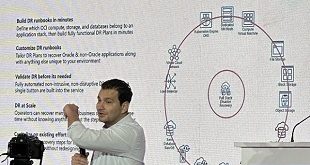
By Jenkins Kiwanuka
The officers could be victims of inferiority complexes caused by conditions under which they live and work
During his annual visit to Uganda last year, a member of my family who works for a foreign police force was driving around Kampala with his wife one evening when he was stopped by two male traffic officers. They demanded to see his driving permit and, after the young man had properly parked his car, he opened his purse and pulled out the permit.
To the amazement of the traffic officers, the visitor also pulled out his foreign police identity card with a coloured logo and beautifully printed names of the force he worked for. Without asking further questions, the two officers promptly stood at attention and saluted their ‘colleague’.
“No, no”, the visitor protested. “You don’t have to salute me; I am a mere constable so we are of the same rank”. Without listening to the protestations, the Ugandan officers merely gazed admiringly at my relative and his wife as if they had just landed from the sky.
“But even if we are of the same rank sir, “one of them ventured, “For you to be working out there is wonderful.” The other officer opened the visitor’s identity card at that stage, and when he saw the engraved photograph of him in uniform exclaimed: “Hi brother, can you take us there as well? Even your helmet is bullet proof.”
The visiting officer said he could not promise that the two men would find jobs with his force and urged them to worker harder and take more courses in police work to promote the standard of the Uganda Police Force. On his part, he was proud to be a Ugandan and he looked forward to joining them when he returned from abroad. There was no better place than home, he said before he drove off.
I recalled that incident when, speaking at Nambole Stadium on presidential nomination day, President Museveni ‘reprimanded’ the Uganda Police Force for mishandling civilians in the course of the Force’s work. Some people said he knew about the police brutality towards civilians and was merely being hypocritical, but I think that in addition to political influences, our police officers are victims of inferiority complex mainly caused by the conditions under which they live and work.
I readily admit that my assessment may not relate to senior police officers. Some of these have benefitted from past and current corrupt practices and are now earning improved salaries in addition to enjoying better terms and conditions of service. But it is certainly true of the junior and small-salaried officers, the majority of whom share accommodation and survive on bribes (kitu kidoogo) they solicit from taxi drivers and small businessmen and women.
Instead of sorting out their problems with their bosses, the so-called ‘kitu kidoogo’ group vent their anger on poor civilians and so-called opposition politicians whenever there is some commotion in the City or elsewhere in the country.
The President expressed dismay that the police was beating up civilians and remarked that even shouting at a civilian was not good. Such mal-practices belonged to another era, he said, but because many cases of police brutality towards civilians – including the undressing of women in public – have been happening under his watch, it is hard for the public to believe that the President is unaware of what is happening. “He is merely politicking”, some are heard saying.
President Museveni advised the police to hand-cuff suspected criminals who become violent, rather than mishandling them. This too reminds me of my relative. He carries a pair of those gadgets with him even when he is travelling abroad and I have no doubt that if the two traffic officers who stopped him had mishandled him, they would have themselves ended up in hand-cuffs at Kampala Central Police Station. His wife can also disable a suspected violent criminal.
****
Jenkins Kiwanuka is a journalist, retired Foreign Service Officer, and author.
E-mail: jkiwanuka700@gmail.com
 The Independent Uganda: You get the Truth we Pay the Price
The Independent Uganda: You get the Truth we Pay the Price



